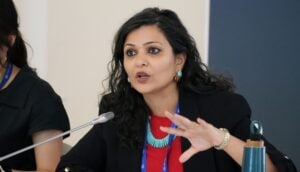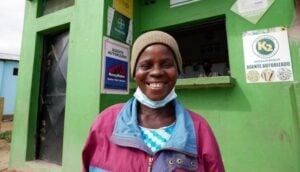Barclays has formed partnerships with international NGOs CARE International and Plan UK to give poor people, especially the young, in Africa and Asia access to basic financial services for the first time, and the skills to save and manage their money effectively.
Social impacts
369,000 women and men, including 245,000 youths, were given access to basic financial services, allowing them to invest in income-generating activities, educational expenses and healthcare.
All beneficiaries have grown in confidence and understanding of money matters through in-depth financial literacy, enterprise and employability training; 74,000 have established income-generating activities.
Over 3,200 groups have accessed formal banking services for the first time, including nearly 2,000 linked to Barclays.
Business impacts
Banking on Change helped develop a viable business case for serving a new customer base across its African business, and also helped develop new products and services in partnership with CARE International and Plan UK.
By developing the Linking for Change Savings Charter, Barclays grew a reputation as an innovator in the area of financial inclusion.
Barclays was seen as a more relevant business at a community level, supporting the needs of the communities in which it works.
Barclays’ Banking on Change initiative gives poor people access to basic financial services for the first time, and the skills to save and manage their money effectively. This has enabled thousands of people in Africa, many of them women, to access basic financial services for the first time.
Financial inclusion for the ‘base of the pyramid’
Over 2.5 billion people have no access to financial services, yet having access to savings, bank accounts or credit can make a huge difference to people’s lives. It allows them to invest in small businesses and increase household income, improving their ability to spend on healthcare and education and to create a better future for themselves and their families.
Lack of access to finance is a global problem requiring global solutions, but those at the “base of the pyramid” are not traditionally seen as a viable customer base for formal financial institutions. Barclays wanted to build and share the business case for developing savings-led products and services that meet poor communities’ specific needs.
Supporting the world’s most impoverished people
Banking on Change is a partnership between Barclays and international NGO’s Plan UK and CARE International UK, operating in seven countries.
The programme focuses on low income groups living on less than $2 a day, especially youth, in marginalised urban, peri-urban and rural locations.
It has enabled 369,000 people, of which 65% are youth and 75% are women, to access basic financial services for the first time.
Savings-led approach to microfinance
Since 2009, Barclays, CARE International and Plan UK have been working together to tackle the issue of financial exclusion, helping to reduce poverty, increase social equality and encourage economic growth.
Taking a savings-led approach to microfinance, Barclays’ Banking on Change helps to set up community savings groups where members save and lend together and are provided with the financial, employment and enterprise skills training they need to manage their finances and start small businesses.
Banking on Change demonstrates that savings-led microfinance works and that no one is too poor to save. To share what has been learnt, the partnership developed the Linking for Change Savings Charter, which aims to encourage other organisations to learn from, adopt and replicate the model.
What Barclays’ Chief Executive said:
“Banking on Change is central to Barclays’ commitment to help five million young people achieve their ambitions. Having seen the programme first hand, I can attest to the incredible difference it is making. Linking informal savers to formal banking creates wider economic and commercial benefit, and enables us to support more customers and grow our business. That’s why this type of activity is core to Barclays’ business model. We need further collaboration between corporates, governments, and civil society to bring financial inclusion to scale.” – Antony Jenkins, Chief Executive, Barclays









